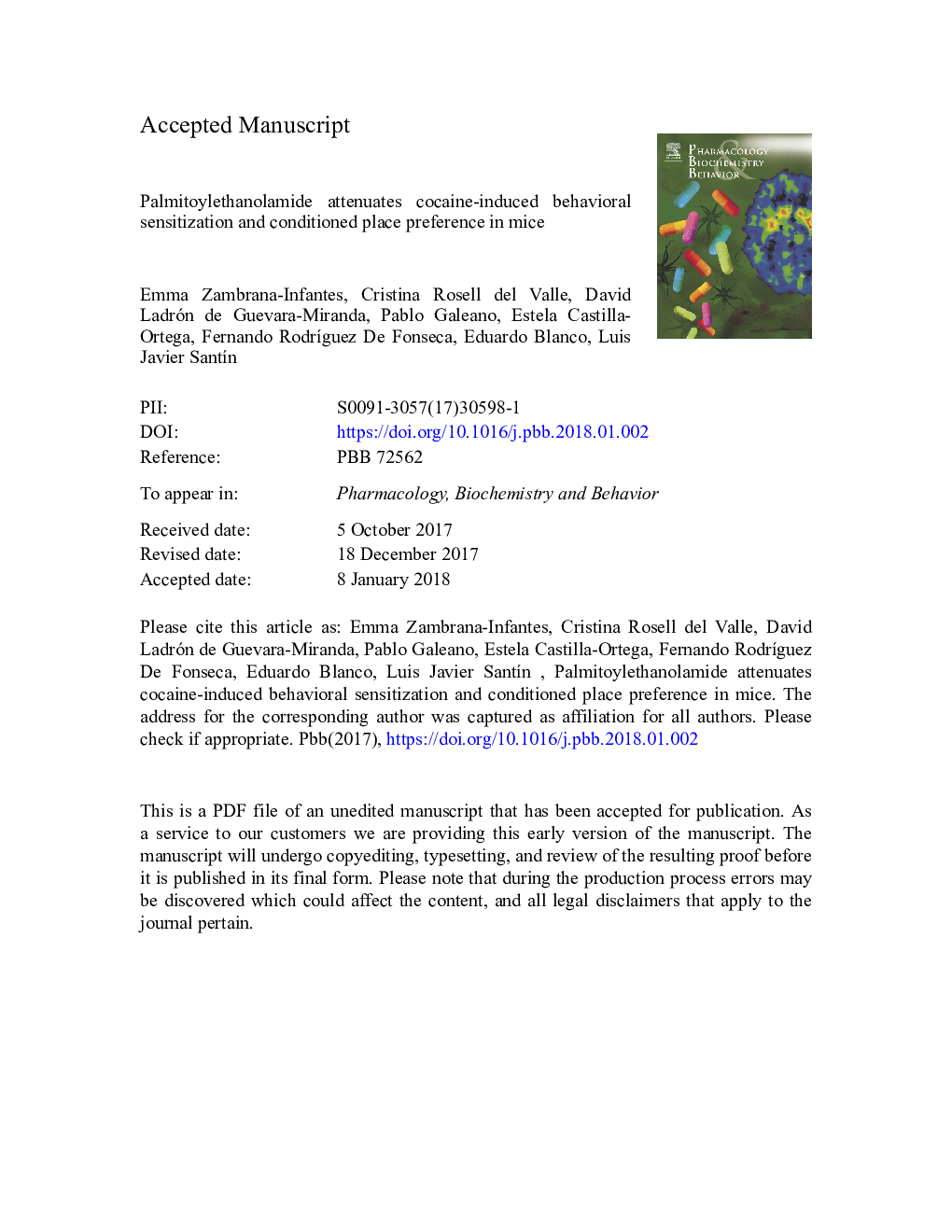| Article ID | Journal | Published Year | Pages | File Type |
|---|---|---|---|---|
| 8350004 | Pharmacology Biochemistry and Behavior | 2018 | 54 Pages |
Abstract
Cocaine addiction is a chronically relapsing disorder characterized by compulsive drug-seeking and drug-taking behaviors. Previous studies have demonstrated that cocaine, as well as other drugs of abuse, alters the levels of lipid-based signaling molecules, such as N-acylethanolamines (NAEs). Moreover, brain levels of NAEs have shown sensitivity to cocaine self-administration and extinction training in rodents. Given this background, the aim of this study was to investigate the effects of repeated or acute administration of palmitoylethanolamide (PEA), an endogenous NAE, on psychomotor sensitization and cocaine-induced contextual conditioning. To this end, the potential ability of repeated PEA administration (1 or 10â¯mg/kg, i.p.) to modulate the acquisition of cocaine-induced behavioral sensitization (BS) and conditioned place preference (CPP) was assessed in male C57BL/6J mice. In addition, the expression of cocaine-induced BS and CPP following acute PEA administration were also studied. Results showed that repeated administration of both doses of PEA were able to block the acquisition of cocaine-induced BS. Furthermore, acute administration of both doses of PEA was able to abolish the expression of BS, while the highest dose also abolished the expression of cocaine-induced CPP. Taken together, these results indicate that exogenous administration of PEA attenuated psychomotor sensitization, while the effect of PEA in cocaine-induced CPP depended on whether PEA was administered repeatedly or acutely. These findings could be relevant to understand the role that NAEs play in processes underlying the development and maintenance of cocaine addiction.
Keywords
AEAN-acylphosphatidylethanolaminesWy-14643GPR119FAAH inhibitorCS-GPR55URB597CB2FAAHCOCCB1NAEN-acylethanolaminesEPMi.p.PEACPPTRPV1oleoylethanolamidepalmitoylethanolamidePPARαOEAelevated plus maze testanandamideFatty acid amide hydrolaseconditioned place preferenceHole-board testconditioned locomotionLocomotor sensitizationBehavioral sensitizationIntraperitoneallyCs+Open fieldNAPEcannabinoid receptor type 1vehVehicleTransient receptor potential vanilloid 1Cocainecannabinoid receptor type 2
Related Topics
Life Sciences
Biochemistry, Genetics and Molecular Biology
Biochemistry
Authors
Emma Zambrana-Infantes, Cristina Rosell del Valle, David Ladrón de Guevara-Miranda, Pablo Galeano, Estela Castilla-Ortega, Fernando RodrÃguez De Fonseca, Eduardo Blanco, Luis Javier SantÃn,
